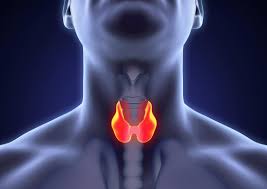The thyroid might be a small gland, but it controls significant body functions. It helps regulate hormones that are supplied to all cells and organs in the body. It also regulates body temperature, aids in thinking, and ensures the heart is pumping synchronously.
When the thyroid becomes overactive or underactive, it leads to specific problems, especially if you are older than 50. Some of these complications could slow down your body functions, affecting your life. Take note of some of these problems and how to identify them.
Hyperthyroidism
Hyperthyroidism is a condition where the thyroid gland becomes overactive. It leads to excess hormone production, especially in women. This condition rarely affects men, and its complications are traceable to Grave’s disease.
Symptoms
- Rapid heartbeat
- Restlessness
- Irritability
- Nervousness
- Excess sweating
- Rapid weight loss
Hypothyroidism
The opposite of hyperthyroidism is hypothyroidism. It is a condition where the thyroid gland is less active. It means that it does not supply enough hormones as the body needs. Hashimoto’s thyroiditis is the leading cause of hypothyroidism, and the best thyroid doctor in Mumbai or other locations can suggest the most suitable treatment for it.
Symptoms
- Dryness of the skin
- Unexplained fatigue
- Memory loss
- Constipation
- Reduced heart rate
- Body weakness
- Depression and anxiety
Hashimoto’s thyroiditis
Hashimoto’s thyroiditis or chronic lymphocytic thyroiditis is the leading cause globally of hypothyroidism. This condition affects younger people and even those older than 50 years. Hashimoto’s thyroiditis is caused by the immune system slowly attacking and destroying the thyroid gland, inhibiting hormone production.
Symptoms
- Depression
- Body fatigue
- Slight weight gain
- Hair loss
- Irregular menstruation
- Goiter
Graves’ disease
Graves’ disease is an autoimmune illness that triggers the thyroid gland to be super active. As a result, this disease primarily causes hyperthyroidism. It is because the immune system will erroneously attack the thyroid gland to produce more hormones to regulate metabolism.
Symptoms
- Anxiety
- Body tiredness
- Irritability
- Irregular heartbeat
- Sweating
- Irregular periods
Goiter
Goiter is a medical condition that causes the thyroid gland to enlarge. Iodine deficiency largely contributes to goiter globally. However, goiter can also be caused when iodized salt supplies excess iodine. Other risk factors for goiter include medication use, pregnancy, exposure to radiation, and medical history.
Symptoms
- Difficulty in swallowing and breathing
- Hoarse voice
- Tightness and swelling in the neck
Thyroid nodules
Thyroid nodules are small growths forming inside or outside the thyroid gland. Thyroid nodules caused by iodine sufficiency are overgrown and can be felt by the hand. Hashimoto’s thyroiditis also causes thyroid nodules, and these nodules are either liquid-filled or solid. In rare cases, the nodules are cancerous and primarily affect more women than men.
Symptoms
- Increased appetite
- Increased pulse rate
- Body tremors
- Weight loss
Thyroid cancer
Although rare, thyroid cancer is one of the cancers affecting the thyroid gland. It primarily affects people over 30 years old, but women over 50 are at greater risk. Thyroid cancer occurs when the DNA in these cells change, causing them to grow out of proportion.
Symptoms
- Visible lumps and swelling on the neck
- Swollen neck glands
- Uncontrollable hoarseness in the voice
- Sore throat
- Difficulty swallowing
Thyroid Storm
A thyroid storm is relatively rare but can be lethal if not treated on time. This disease is related to Grave’s disease and is caused by an untreated overactive thyroid. In some cases, a thyroid storm occurs when an individual consumes radioactive iodine.
Symptoms
- Confusion
- Agitation
- Heavy heartbeats
- Sweating and restlessness
- Higher body temperatures
Hashitoxicosis
Hashitoxicosis is always associated with Hashimoto’s thyroiditis and is transient hyperthyroidism. It occurs when the thyroid follicles are disturbed, causing an excess release of the thyroid hormone. This disease affects metabolism and conversion of food to energy.
Symptoms
- Weight loss
- Increased appetite
- Anxiety and depression
- Unexplained hair loss
- Body weakness
- Hyperactivity
Euthyroid sick syndrome
A euthyroid sick syndrome is a disease where the serum levels of thyroid hormones are suppressed in patients without thyroidal systemic illness. This condition can be identified when testing thyroid functions in non-thyroidal illnesses.
Symptoms
- Cold intolerance
- Muscle and joint pain
- Rapid weight gain
- Fatigue and illnesses
Diagnosis and treatment of thyroid conditions
Diagnosing thyroid problems is complicated because the symptoms are similar to those of other conditions. There are three main tests the best thyroid doctor in Mumbai conducts to check for thyroid function, including;
- Blood tests
- Physical examination
- Imaging tests
Treatment
Treating thyroid diseases does not take a one-size-fits-all route. The goal of treatment is to return the hormone level to normalcy. The best thyroid doctor in Mumbai at Nanavati Max Hospital can treat specific thyroid conditions through;
- Use of anti-thyroid drugs to regulate hormone production
- Using radioactive iodine to treat damaged thyroid cells to prevent hormone release
- Using beta-blocker to manage symptoms
- Surgical removal of the thyroid to stop hormone release
Thyroid problems are often long-term, and patients should constantly manage the disease with medication. Working with a specialist helps you monitor and adjust your treatments over time. However, it is possible to live everyday life with thyroid problems even after reaching 50.





